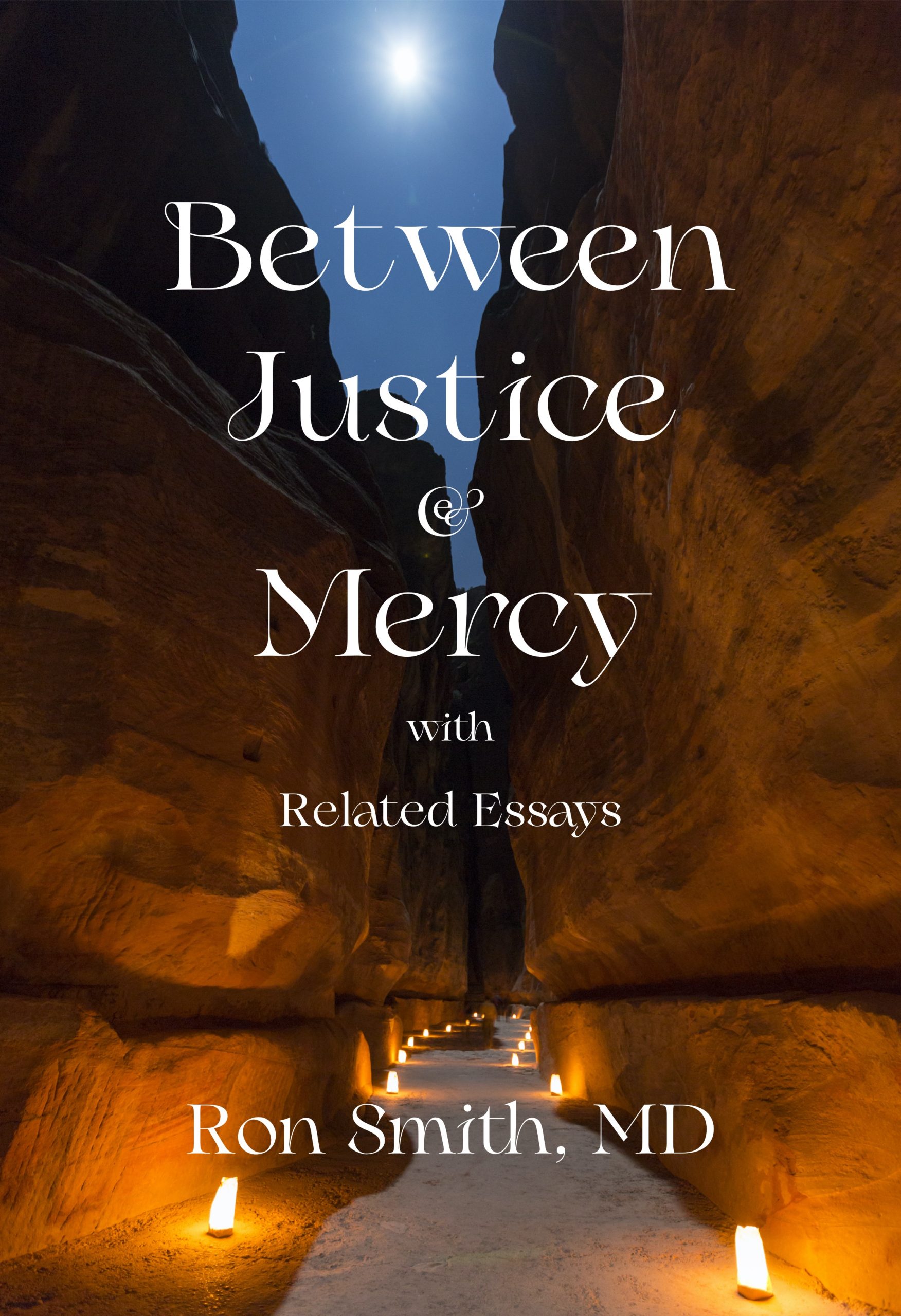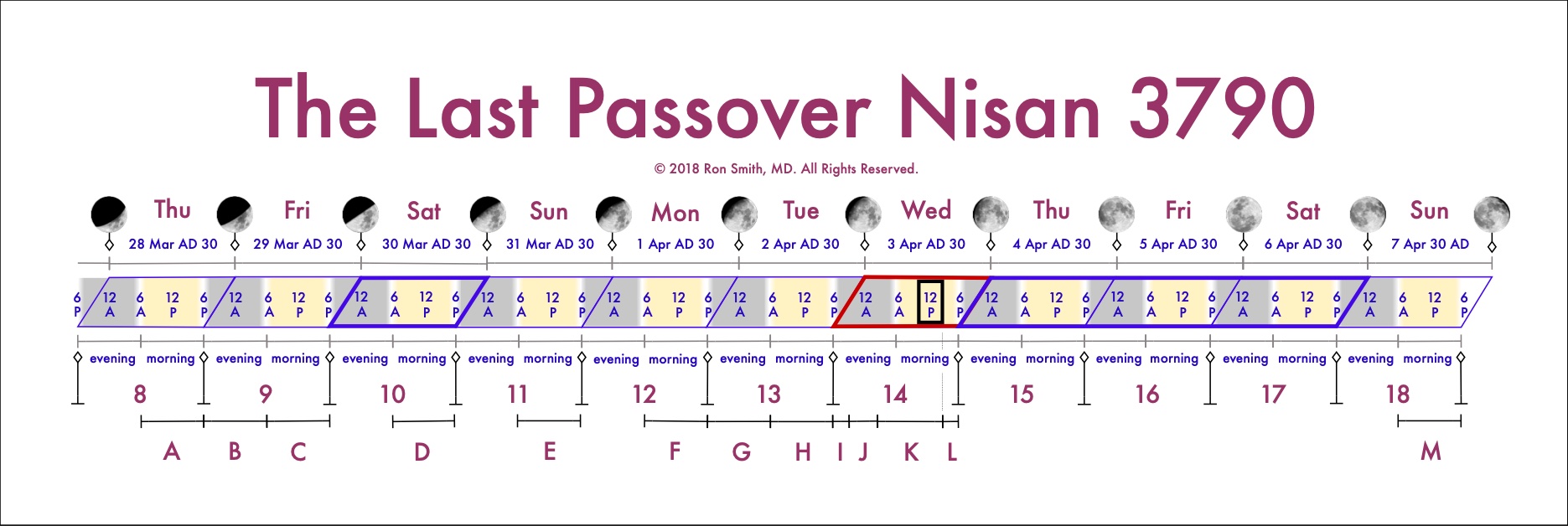

Since Laura’s death, my relationship with the Lord has increased ever so much. It was as if the Lord revealed all the “whys” of the faith which pillared my life.
My books strive to lift existing believers up. For those who don’t know God, they will challenge every reason that walls you off from him.
Reviews of Between Justice & Mercy with Related Essays
C. G. Connoly (verified customer) on Amazon ✰✰✰✰✰
C. G. Connoly, Amazon Customer. This review was posted January 28, 2025 on Amazon.
Dr Ron Smith starts the book with God’s sovereignty and a great love for his creation and goes through the timeline from Jesus birth to His death and Resurrection. Old Testament traditions and life during those times are throughout the book. I would highly recommend reading this book. Great research and writing. Truly inspired from the Holy Spirit!
Judy Y (verified purchase) on Amazon ✰✰✰✰✰
Judy J, Amazon Customer (verified purchase). This review was posted May 9, 2023 on Amazon.
Good book
Martin Johnson on Amazon ✰✰✰✰✰
Dr Martin Johnson. Former Royal Air Force pilot, retired Charity CEO. Director, The Thalidomide Trust 2000-2014. Degrees: Divinity (BD Hons), Management (PhD), and Behavioural Science (MSc). This review was posted February, 19, 2021 on Amazon.
Ron Smith has set out some ways of showing how we, living in a fallen world, can relate to and comprehend the Holy and Almighty God who offers us salvation in the person of Jesus. He tackles the problem of evil in the world by explaining the nature of God’s love for us, and the freedom we have to turn away, as this love means God would never enslave us (and thereby prevent us from doing wrong). He tackles some complex matters, such as the nature of time (dealing with how God’s foreknowledge is not incompatible with our linear experience of time). He discusses heaven and hell, and the nature of the Trinity in understandable terms, and throughout supplies explanations from scripture and great writers such as C S Lewis.
Not until you get to the end of the book, however, do you learn the driving force which has propelled Ron through this deep and comprehensive learning. This is that his first child, Laura, was born with severe birth defects caused by the prescription medication Accutane. Ron and his wife then cared for Laura for the rest of her life until she died in 2012. I worked for many years with people born damaged by the drug Thalidomide, and witnessed at first hand the lifetime struggle of many parents whose child was born with brain damage as well as the more familiar limb defects, so know just how hard it can be for families in this situation. So Ron’s devotion to God and understanding of His great love has been forged on one of the toughest anvils this world can supply.
If you are wondering about such things as “how can there be evil in the world if God is love,” or “why are bad things happening to me if I’m a Christian,” then this is the book for you. Written by someone who’s “been there, done that, got the T-shirt.”
Foreword by Thomas W. Langford, Sr., Retired Pastor, AA, BA, Mdiv, September 28, 2020
To grasp and experience God’s justice and mercy and understand what is between the two, one first must accept the fact that God is sovereign.
Ronnie Smith explores the benevolent aspects of God’s sovereign mercy and grace. He believes God’s love does not demand something in return from his creation. He allows his creation to decide to respond to his love—and return love, trust, and obedience. This begs the question: can a rejected sovereign really continue to bestow mercy, grace love on those who reject him? Smith’s answer to the question is yes, but often the justice, mercy and love do not come in the form we desire or expect.
Smith briefly works through an accepted truth: there are certain codes for behavior (rules, laws, etc.) which everyone is expected and required to adhere. Governments, kings, and sovereigns all have them.Violation of those codes of behavior requires justice. Justice—a penalty or price to make or erase the violation as if it had not happened—is set by the offended. Smith gives Bona Fides to God that he is the offended and humanity is the offender. We owe something to God.
Humanity has violated (and still does) God’s laws. Even though God loves us expecting nothing in return, a violated law still requires justice. There is a price to pay. Thus argues Smith, God cannot be a just God without requiring justice. We owe something to God, but what? Scripture tells us the required price, and that makes us turn to him and cry, “Mercy!”
Mercy doesn’t mean there is an easy fix. Mercy from a sovereign God still requires justice and payment.
Yet Smith explains that. God’s love for us reverses the order of justice and mercy. Rather than us paying the price, he satisfied his own justice with the life of his son Jesus. His life, teaching, death and resurrection reach between mercy and justice. He proves he will give everything he has for us.
In the first Passover, justice and mercy were both served. The blood of a lamb spared the Hebrews in Egypt. The blood of the LAMB, Jesus, spared Christians’ lives in the Second Passover.
Ronnie’s research of the Second Passover details the timeline of Jesus’s life. It dives deep into his teaching about the Old Testament prophetic fulfillment, identity, and purpose of the Messiah. This book explains how Jesus bridges judgment and mercy.
Knowing Ronnie Smith as I do, his genuine faith in Jesus Christ, his love for God, his search for Biblical truth and his desire to share those truths, I highly recommend this book. I may have repeated myself several times, but he has satisfied the title of his book. I highly recommend it to you.
—Thomas W. Langford, Sr., Retired Pastor, AA, BA, Mdiv, September 28, 2020
Editor's Note by Shauna Perez, September 22, 2020
I appreciate Dr. Ron Smith’s intensive research to address a couple of “stumbling blocks” that have arisen for those examining the Christian faith. First, as depicted in his title, Between Justice and Mercy, is the erroneous dichotomy of the God of the Old Testament versus the God of the New Testament. Many get caught up in seeing God as a wrathful, Zeus-like god in the sky, ready to strike us down. But Dr. Smith goes to great lengths to show that God’s mercy is and always has been present, even from humanity’s first act of disobedience.
The other difficulty for a thinking person is reconciling the three days in the tomb that Jesus himself predicted with the “Good Friday” scenario most widely taught. I commend Dr. Ron for digging deep into the Hebrew calendar and culture of the time to help those unfamiliar with these to see the timeline from the right perspective. He carefully constructs a thorough argument for the crucifixion happening on Wednesday so that a full three days in the tomb take place, then—glory to God—Christ the FirstFruits offering arose on the first day of the week.
—Shauna Perez, editor and fellow student of the Word for twenty-seven years, September 22, 2020
Reviews of Decisive Love
Belinda Burns , God's Love is decisive (verified purchase) on Amazon ✰✰✰✰✰
Belinda Burns, (verified purchase) Amazon Customer. This review was posted November 18, 2024 on Amazon.
I have known Ron for about 37 years and feel honored to call him a dear friend. I was blessed to know his beautiful daughter, Laura, and to witness the difficult walk he and Stacy experienced. Laura’s life was an inspiration for she was God’s special blessing to many of us. His writing is straight from the heart. Using his life stories and God-inspired scripture, he illustrates how God’s love is decisive and all encompassing.
R. E. Moffett, “Decisive Love is worth the read!” - on Amazon ✰✰✰✰✰
Catalin Hrisafi-Josan, “The only cure for our broken being” - on Amazon ✰✰✰✰✰
Jennie L. Wood, “God’s unconditional love for us models what should be our love for Him!” - on Amazon ✰✰✰✰✰
Foreword by Mike Holman, May 3, 2024, Blairsville, Georgia
I’ve gotten to know Dr. Ron over the last four years, first through men’s bible studies but more intimately by sharing coffee on Monday mornings. Little did I know that he was my granddaughter’s pediatrician for years in West Georgia. My son and daughter-in-law loved him as their child’s doctor. Ron is a loving husband, father, and devoted friend and loves the Lord Jesus. He is committed to seeing people come to know Jesus Christ.
After reading his last book Between Justice & Mercy, I was excited to know he was writing the new book, Decisive Love. He had taught on it in our men’s bible study. The message has had an amazing impact on all our lives, so much I have given him the name, “The Love Doctor. “
In his book, Decisive Love, Dr. Ron shares with each of us the only kind of love that really changes lives and relationships. Ron dives deep into the Holy Scriptures to show us the love God has for each of us through his son Jesus, and how we, as his children, show love to others.
As one who is serving as an elder, Sunday school teacher, leading men’s Bible studies, and a past missions leader, I would highly recommend this book for those who want to learn and share more about God’s decisive love.
—Mike Holman, May 3, 2024, Blairsville, Georgia
Larry Schreiner, May 13, 2024, Blairsville, Georgia
As you explore the words of this book, you are also exploring the heart of a man who deeply loves God, and those he has created. To many, Ron is known as “Dr. Love” because of his deep desire to love others as God loves them. For Ron, this is not a casual activity, but a challenge God has placed upon him. A challenge to love others as Jesus has commanded when he said in Luke 10:27, “Love your neighbor as you love yourself.”
Decisive Love gives you the opportunity to learn how to develop a love for others that becomes infectious. Not only will this love spread from one to another, it will also draw others into a loving fellowship with you. A fellowship enabling you to understand and meet the needs of those surrounding your life.
Before turning this page, ask the Holy Spirit to prepare your spirit to learn to love others in God’s way.
—Larry Schreiner, May 13, 2024, Blairsville, Georgia
Foreword by Thomas W. Langford, Sr., Retired Pastor, AA, BA, Mdiv, May 13, 2024, Blairsville, Georgia
To grasp and experience God’s justice and mercy and understand what is between the two, one first must accept the fact that God is sovereign.
Ronnie Smith explores the benevolent aspects of God’s sovereign mercy and grace. He believes God’s love does not demand something in return from his creation. He allows his creation to decide to respond to his love—and return love, trust, and obedience. This begs the question: can a rejected sovereign really continue to bestow mercy, grace love on those who reject him? Smith’s answer to the question is yes, but often the justice, mercy and love do not come in the form we desire or expect.
Smith briefly works through an accepted truth: there are certain codes for behavior (rules, laws, etc.) which everyone is expected and required to adhere. Governments, kings, and sovereigns all have them.Violation of those codes of behavior requires justice. Justice—a penalty or price to make or erase the violation as if it had not happened—is set by the offended. Smith gives Bona Fides to God that he is the offended and humanity is the offender. We owe something to God.
Humanity has violated (and still does) God’s laws. Even though God loves us expecting nothing in return, a violated law still requires justice. There is a price to pay. Thus argues Smith, God cannot be a just God without requiring justice. We owe something to God, but what? Scripture tells us the required price, and that makes us turn to him and cry, “Mercy!”
Mercy doesn’t mean there is an easy fix. Mercy from a sovereign God still requires justice and payment.
Yet Smith explains that. God’s love for us reverses the order of justice and mercy. Rather than us paying the price, he satisfied his own justice with the life of his son Jesus. His life, teaching, death and resurrection reach between mercy and justice. He proves he will give everything he has for us.
In the first Passover, justice and mercy were both served. The blood of a lamb spared the Hebrews in Egypt. The blood of the LAMB, Jesus, spared Christians’ lives in the Second Passover.
Ronnie’s research of the Second Passover details the timeline of Jesus’s life. It dives deep into his teaching about the Old Testament prophetic fulfillment, identity, and purpose of the Messiah. This book explains how Jesus bridges judgment and mercy.
Knowing Ronnie Smith as I do, his genuine faith in Jesus Christ, his love for God, his search for Biblical truth and his desire to share those truths, I highly recommend this book. I may have repeated myself several times, but he has satisfied the title of his book. I highly recommend it to you.
—Thomas W. Langford, Sr., Retired Pastor, AA, BA, Mdiv, September 28, 2020



